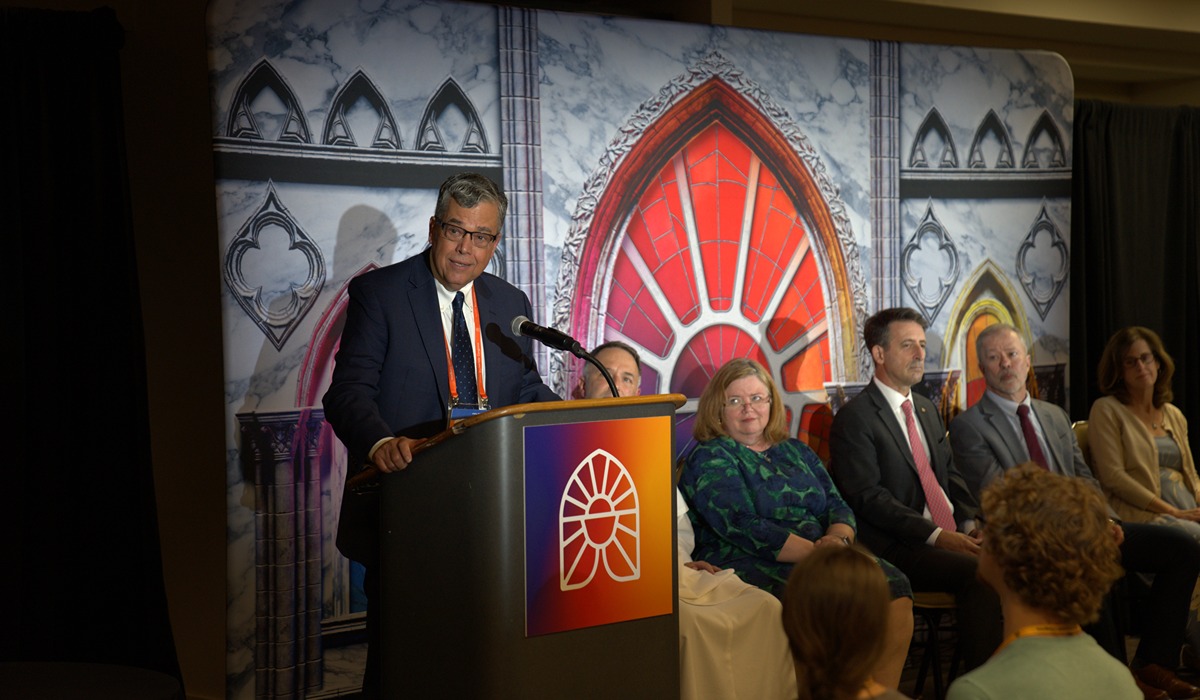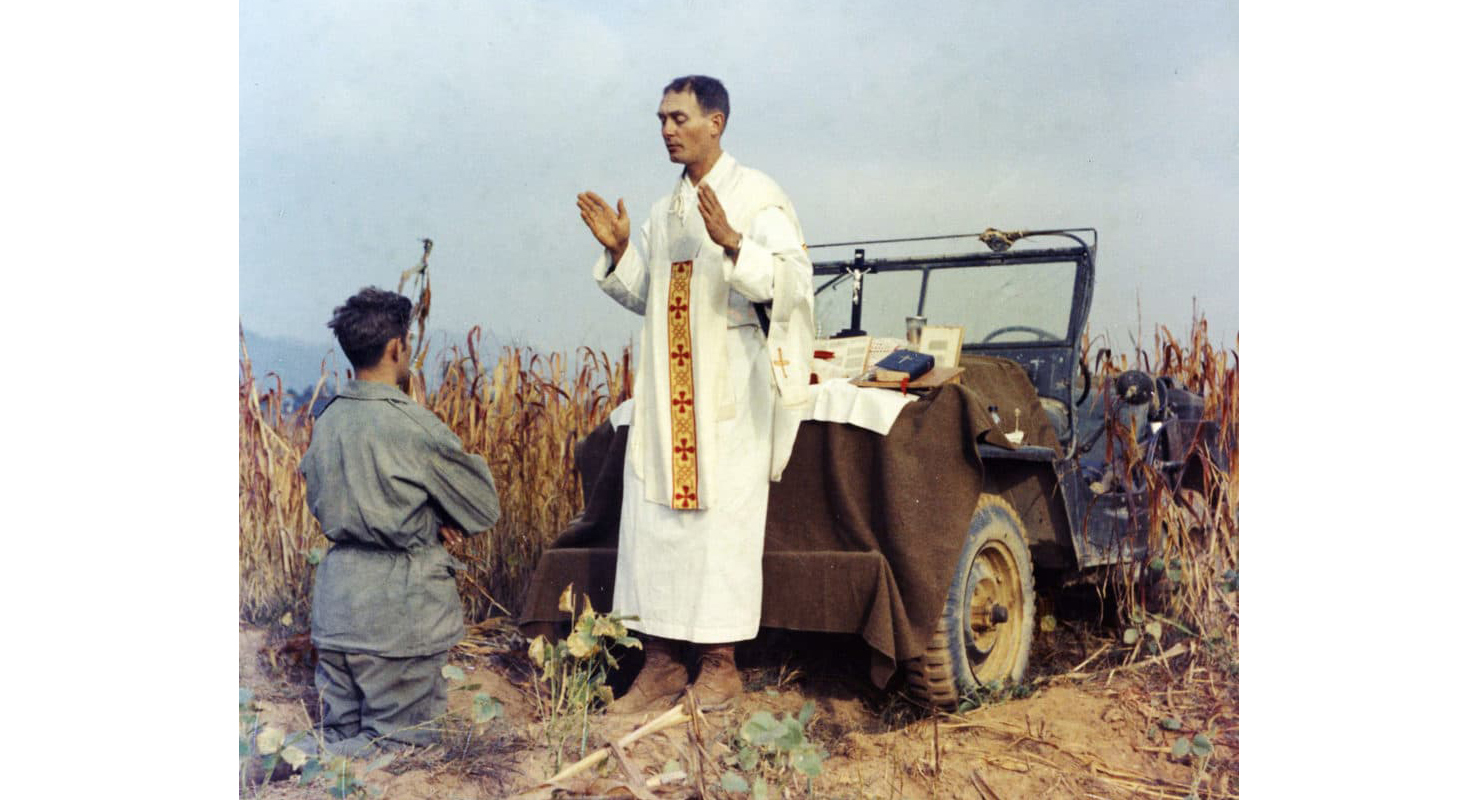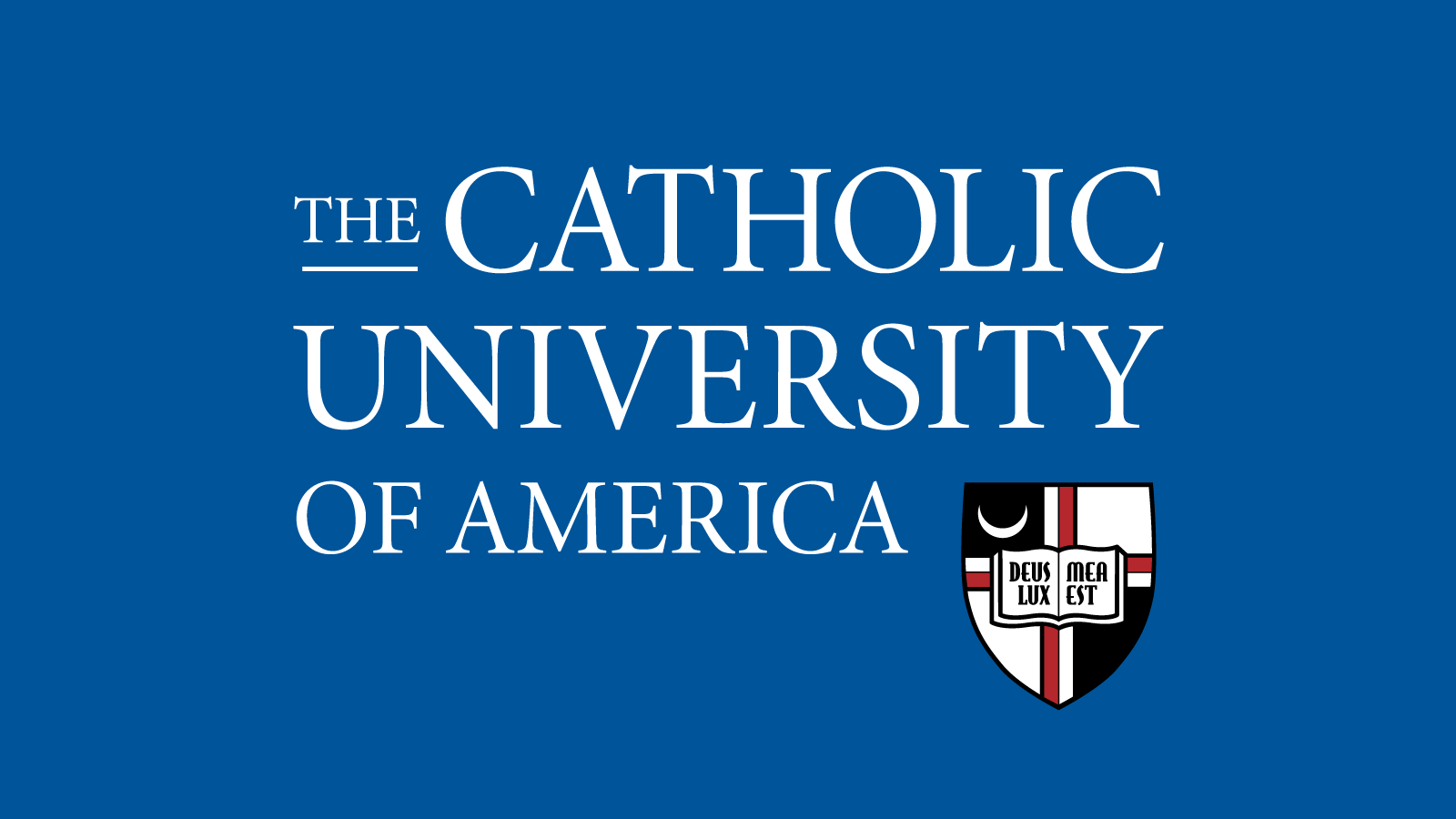INDIANAPOLIS – A National Eucharistic Congress breakout session presented by The Catholic University of America sought to explore the increasingly difficult challenge of creating lifelong disciples.
On July 19, a standing-room-only crowd packed inside the Crowne Plaza Hotel to hear from University experts, alongside education and lay leaders, who explored the complementary roles of parents and Catholic teachers in forming their children. The session, titled Is "Orthodoxy Enough?: The Family and Catholic Education" was another visible sign of the University's placement at the Congress.
“We all want our children to become lovers of the truth, to be faithful and charitable, to be attached to Christ — ultimately, to become saints,” University President Peter Kilpatrick said in opening remarks. “But we know that in humility, we can only offer the truth and propose ways of knowing it; there is no way for us to both offer a true, vigorous, broad-minded education and prevent students from rejecting what is proposed to them. We educate in freedom and toward freedom.”
The president encouraged the crowd, some of whom held their young children in their arms, to reflect the light of the Gospel in everything they do.
“To preach the Gospel with the example of our lives,” he said. “A faculty and a family must keep Christ at the center of their activity, or else what they profess will devolve into empty abstractions.”
The president then sat with the audience as a panel of experts delved into the topic. Among the leaders was moderator Father Aquinas Guilbeau, OP, the University’s Chaplain, and the Vice President for Ministry and Mission. Rockville Centre’s Bishop John O. Barres, who serves as vice chair of the University’s board of trustees, delivered the opening prayer for the session. He thanked God for the University’s “global missionary spirit.”
Andrew Abela, founding dean of the Busch School of Business and Ordinary Professor of Marketing, served as a panelist. He emphasized the value of cultivating virtue among young people in a higher education setting like Catholic University. Higher education, he said, is less about classes and more about the positive formation of the whole person.
“We want our kids to be self-disciplined,” Dean Abela said. “That's the virtue of temperance. We want our kids to be resilient, that's part of the virtue of courage and fortitude. We want our kids to be fair to others, to get along with others, to be friendly to others; those are all virtues within the virtue of justice. And then, of course, we want to make wise decisions to be rational. And this is the virtue of wisdom.”



